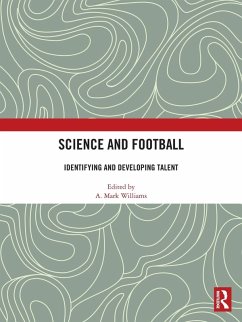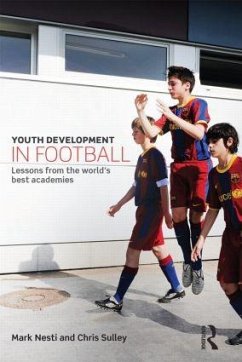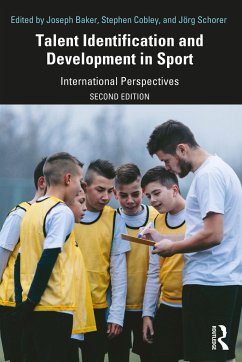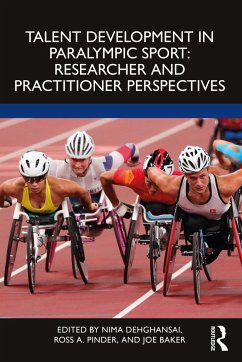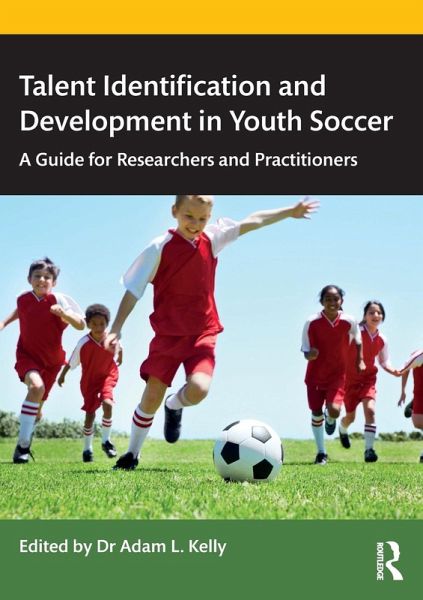
Talent Identification and Development in Youth Soccer
A Guide for Researchers and Practitioners
Herausgegeben: Kelly, Adam
Versandkostenfrei!
Versandfertig in 6-10 Tagen
43,99 €
inkl. MwSt.
Weitere Ausgaben:

PAYBACK Punkte
22 °P sammeln!
Talent development pathways in youth soccer provide opportunities for young players to realise their potential. Such programmes have become increasingly popular throughout governing bodies, professional clubs, and independent organisations. This has coincided with a rapid rise in sport science literature focused specifically on optimising player development towards expertise.However, the decreasing age of recruitment, biases in selection, inconsistencies in the language used, underrepresented populations, and large dropout rates from pathways have magnified the potential flaws of existing orga...
Talent development pathways in youth soccer provide opportunities for young players to realise their potential. Such programmes have become increasingly popular throughout governing bodies, professional clubs, and independent organisations. This has coincided with a rapid rise in sport science literature focused specifically on optimising player development towards expertise.
However, the decreasing age of recruitment, biases in selection, inconsistencies in the language used, underrepresented populations, and large dropout rates from pathways have magnified the potential flaws of existing organisational structures and settings. Moreover, despite both the professionalisation of talent development pathways and growing research attention, we still know little about the characteristics that facilitate accurate recruitment strategies into pathways and long-term development outcomes.
Talent Identification and Development in Youth Soccer provides an all-encompassing guide for both researchers and practitioners by gathering the existing literature to help better understand the current context of this discipline. Chapters are contributed by a team of leading and emerging international experts, examining topics such as technical, tactical, physical, psychological, social, activities and trajectories, career transitions, relative age effects, creativity, and genetics, with each chapter offering important considerations for both researchers and practitioners.
With a dual emphasis on both theory and practice, this book is an important text for any student, researcher, coach, or practitioner with an interest in talent identification, talent development, youth soccer, soccer coaching, or expertise and skill acquisition.
However, the decreasing age of recruitment, biases in selection, inconsistencies in the language used, underrepresented populations, and large dropout rates from pathways have magnified the potential flaws of existing organisational structures and settings. Moreover, despite both the professionalisation of talent development pathways and growing research attention, we still know little about the characteristics that facilitate accurate recruitment strategies into pathways and long-term development outcomes.
Talent Identification and Development in Youth Soccer provides an all-encompassing guide for both researchers and practitioners by gathering the existing literature to help better understand the current context of this discipline. Chapters are contributed by a team of leading and emerging international experts, examining topics such as technical, tactical, physical, psychological, social, activities and trajectories, career transitions, relative age effects, creativity, and genetics, with each chapter offering important considerations for both researchers and practitioners.
With a dual emphasis on both theory and practice, this book is an important text for any student, researcher, coach, or practitioner with an interest in talent identification, talent development, youth soccer, soccer coaching, or expertise and skill acquisition.






